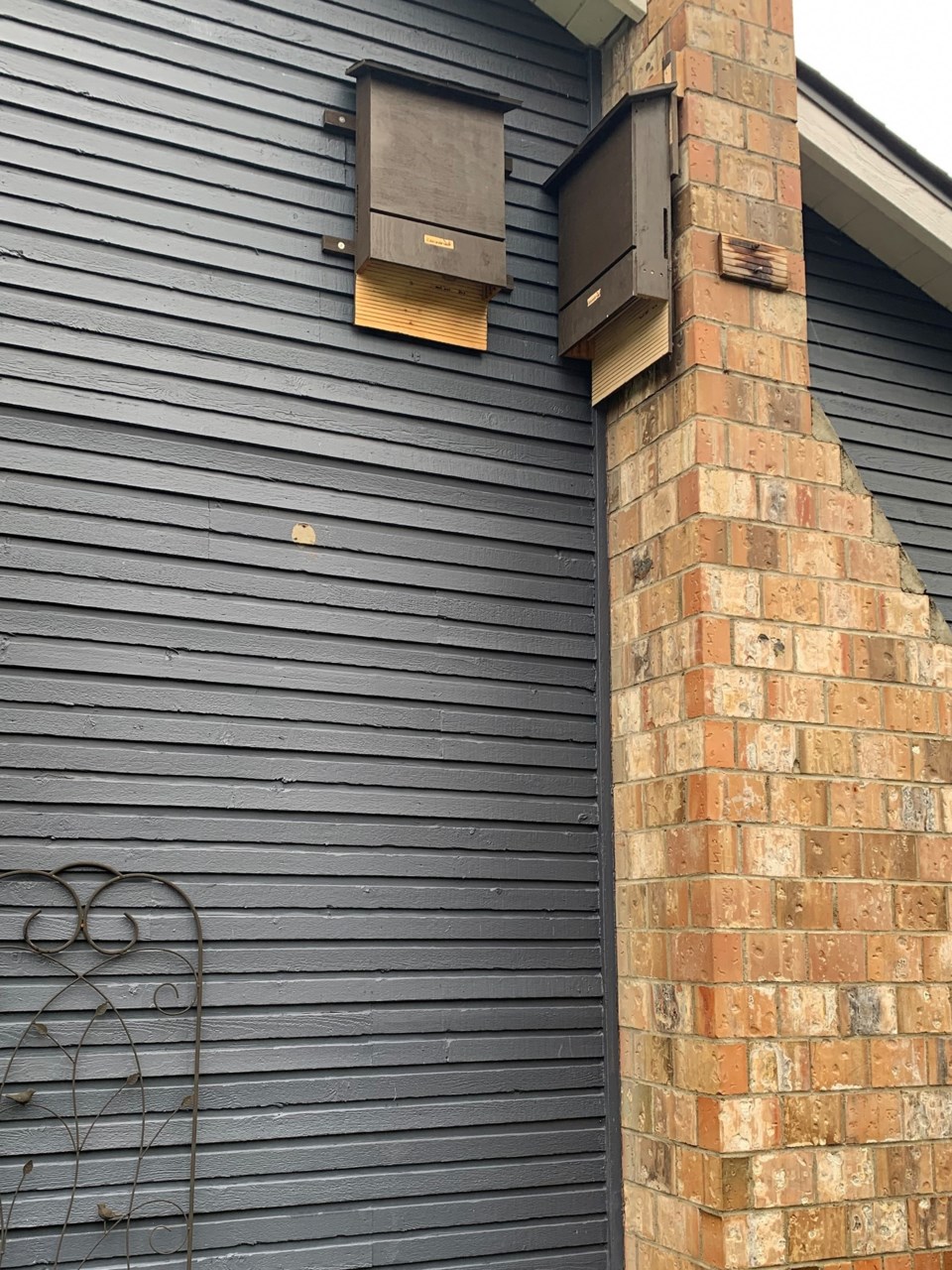I’ve always been fascinated by bats. Despite their nocturnal ways and scary reputation, I’ve never been afraid of them.
I know that their ability to echolocate, which allows them to catch their body weight in insects every night, also allows them to avoid contact with me.
More than 20 percent of all mammal species are a type of bat. They are the only mammals that can fly, and they are super fast.
Sadly, because of a fungal disease called White-nose Syndrome, millions of bats have died. Scientists are working hard to find solutions. We can all help by reporting any winter bat sightings (dead or alive), to bcbats.ca.
Some years ago, I installed a bat box in the hope of attracting more bats to my yard. Although I could see bats flying around at dusk most nights during the summer, none ever took up residence in my bat box.
Early last year I learned that the design of the box I was using was not suitable for the bats we have in our area. So, last spring, I installed better-designed boxes on the house. Bats didn’t move in this past year, but I feel the odds of that happening are better now.
One fun tool I discovered last summer is the echo meter, a device for listening to and recording bats. It is part of the “Bat Pack” that you can check out of our local libraries and it works together with a cell phone app. The echo meter picks up the bat’s ultrasonic echolocation frequencies, and the app tells you in real time which bat species are flying around and their flight paths. It’s not 100 per cent accurate, but it’s still fun and worth checking out when bats are active again this spring.
The City of Delta has been designated a Bat-Friendly Community by the Community Bat Program of BC. See more at: bcbats.ca.
Editor's Note: Nature Notes is a monthly column written by the Delta Naturalists Society and their other community partners.



